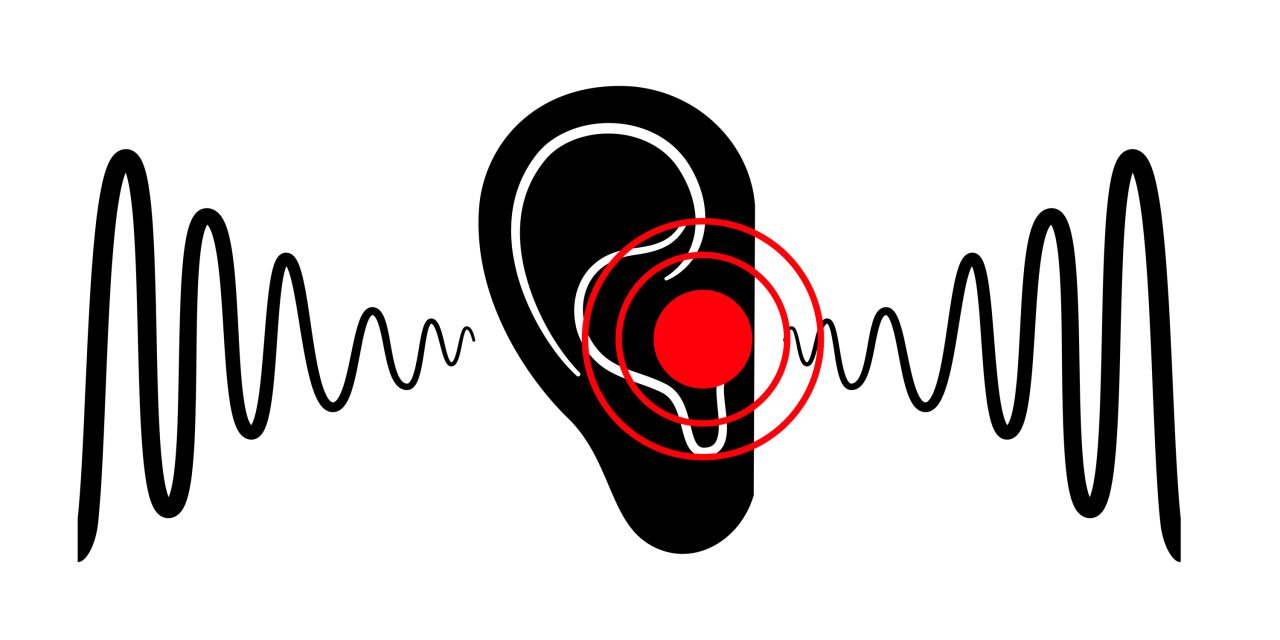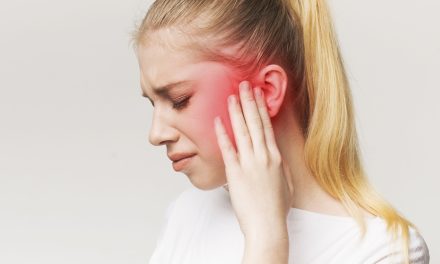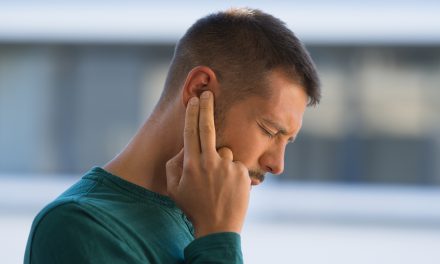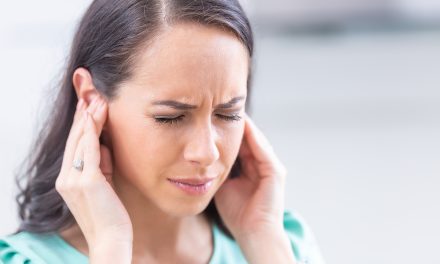Tinnitus is a common condition that many people experience. It affects up to one fourth of adults, but for less than 10%, it is significantly bothersome. This can impact daily activities and well-being by affecting sleep and concentration.
It tends to be slightly more prevalent among men, although the exact reasons are not entirely clear. Different studies have suggested variations, but the overall prevalence shows a noticeable pattern.
While tinnitus might seem overwhelming, understanding it can lead to better management and improved quality of life.
Tackling the root causes and exploring various treatments can bring significant relief.
Key Takeaways
- Tinnitus affects up to 25% of adults, being severe for less than 10%.
- Management of tinnitus can help improve quality of life.
- Various treatments and lifestyle changes offer relief from symptoms.
Understanding Tinnitus
Tinnitus is a condition where individuals hear noises like ringing, buzzing, or hissing, without an external sound source. It can vary greatly in types and symptoms. Knowing these aspects can help in addressing and managing tinnitus effectively.
Characteristics of Tinnitus
Tinnitus can manifest as a ringing, buzzing, or hissing noise in the ears. It often occurs continuously but can also be intermittent.
The intensity and frequency of these sounds can differ from person to person. While some people might experience a mild annoyance, others find it significantly affects their daily life.
Objective Tinnitus can be heard by others, often noticeable during a medical exam. It can sometimes stem from vascular problems or muscle contractions.
Pulsatile Tinnitus is marked by rhythmic sounds, often matching one’s heartbeat and usually linked to blood flow changes.
Types of Tinnitus
Tinnitus can be categorized into subjective and objective types.
Subjective tinnitus is the most common, where only the affected individual hears the sounds. It often results from issues in the ear or brain. Understanding its causes can be complex, as it might involve hearing loss or injury.
Objective tinnitus, though rare, involves sounds that both the patient and examiner can hear. It often connects to physical functions in the body, such as blood flow. Tinnitus caused by these mechanisms can sometimes be targeted for treatment.
Common Tinnitus Symptoms
Symptoms of tinnitus include constant or periodic sounds like buzzing or ringing in the ears. These sounds can range from low to high pitch and might change over time.
Some individuals experience significant discomfort, disrupting their sleep or ability to concentrate.
While some might only notice tinnitus in quiet settings, others might experience it constantly. In certain instances, it might be accompanied by hearing difficulties or sensitivity to sound. For those with central auditory processing disorders, understanding speech in noise can become a problem, further complicating tinnitus experiences.
Causes and Risk Factors
Tinnitus can result from various causes, often linked to hearing or medical conditions. Lifestyle choices also play a significant role. Common triggers include exposure to loud noises, certain health conditions, and stress. Understanding these factors can help individuals identify potential risks and seek appropriate interventions.
Hearing-Related Causes
Hearing loss is a primary factor in the development of tinnitus. When the cochlea or other parts of the inner ear are damaged, it can lead to the perception of ringing or buzzing sounds.
Exposure to loud noises over time, such as from machinery or headphones at high volumes, can also contribute to damage.
Earwax buildup can block ear canals, leading to hearing changes and tinnitus. Conditions such as otosclerosis, which affects the middle ear bones, also have an impact.
Acoustic neuroma is a noncancerous growth that can press on nerves in the ear, causing tinnitus symptoms.
Medical Conditions
Certain medical conditions are associated with tinnitus. High blood pressure can affect blood flow, causing noise perception changes in the ears. Some medications, such as antibiotics or diuretics, list tinnitus as a side effect.
Migraines and other chronic conditions can exacerbate or trigger tinnitus episodes. Ear infections can lead to temporary or persistent ringing until resolved. Injuries to the head or neck might also impact nerves related to hearing, resulting in tinnitus.
Lifestyle Impacts
Stress is a significant contributor to tinnitus, often worsening the symptoms in affected individuals. It can affect how the brain processes sound, making tinnitus more noticeable.
Additionally, stress management techniques can help reduce the impact of tinnitus on daily life.
Exposure to loud environments without proper ear protection heightens the risk. Aging also increases vulnerability due to natural changes in hearing over time. Some underlying conditions, such as chronic stress or poor diet, can likewise play a role by affecting overall ear health and function.
Diagnosing Tinnitus
Diagnosing tinnitus involves several steps, including a medical examination, various hearing tests, and sometimes advanced imaging techniques. Each step plays a vital role in pinpointing the exact cause of the condition and determining the best course of treatment.
Medical Examination
A thorough medical examination is the first step in diagnosing tinnitus. Doctors, often in collaboration with an audiologist, will review the patient’s medical history. They assess symptoms, focusing on when the tinnitus began, its frequency, and any accompanying symptoms like dizziness.
The examination includes checking for earwax buildup, which might contribute to tinnitus. Conditions affecting the auditory nerve or brain structures are also considered. The doctor may look for signs of other health problems related to the auditory system, which may help identify underlying causes.
Hearing Tests
Hearing tests are crucial in diagnosing tinnitus. An audiologist usually conducts these tests to assess hearing ability.
One commonly used test is the audiogram, which evaluates hearing acuity across different frequencies.
These tests help identify hearing loss, which is often linked to tinnitus. By pinpointing the specific frequencies affected, audiologists can better understand the nature and potential causes of the tinnitus. Results from hearing tests can guide further diagnostic procedures and inform treatment options.
Advanced Imaging Techniques
In some cases, advanced imaging techniques, like magnetic resonance imaging (MRI), may be necessary. An MRI helps rule out serious conditions like a vestibular schwannoma, a growth affecting the auditory nerve that can cause tinnitus.
Imaging scans provide detailed views of the brain and inner ear structures. This helps in assessing any abnormalities that might contribute to the symptoms. While not always required, these techniques provide critical information, particularly when other diagnostic methods have not identified the cause.
Conventional Treatments
Conventional treatments for tinnitus often involve a mix of approaches that aim to reduce symptoms and improve quality of life. These can include medical therapies, psychological therapies, and devices that assist with hearing and masking sounds.
Medical Therapies
Medical therapies for tinnitus may involve medications to manage symptoms. Antidepressants can help alleviate stress and anxiety linked with tinnitus, which may in turn reduce its impact.
Benzodiazepines are sometimes used for their calming effects on the nervous system. Doctors may also prescribe anticonvulsants in specific cases, though evidence for their effectiveness is limited.
Some patients may find relief with nutritional supplements, though these are not universally recommended due to inconsistent results. It’s important for patients to consult their healthcare providers before starting any medication or supplement to ensure proper management.
Psychological Therapies
Psychological therapies play a crucial role in managing tinnitus. Cognitive Behavioral Therapy (CBT) helps patients change negative thought patterns and behaviors related to their symptoms. By addressing these psychological aspects, CBT can significantly reduce distress.
Behavioral therapy is another method that focuses on reducing the emotional response to tinnitus.
Tools like tinnitus retraining therapy (TRT) combine sound therapies with counseling, helping patients adapt to living with tinnitus over time. These therapies aim to make tinnitus less noticeable and less bothersome.
Hearing Aids and Masking Devices
Hearing aids can be effective for those who have both hearing loss and tinnitus. They amplify external sounds, which can help mask the internal sounds of tinnitus. By improving general hearing, these devices can make the ringing or buzzing less prominent.
Masking devices create external noise that covers up tinnitus sounds. These can be worn in the ears or used as standalone devices in a room. Both types of devices are aimed at providing relief for people with tinnitus, and they can be especially helpful when used alongside other treatments like TRT.
Alternative and Supportive Therapies
Managing tinnitus often involves exploring various therapies. These approaches may include natural supplements, sound techniques, and innovative treatments. Each offers potential relief, though results vary from person to person.
Natural Supplements and Remedies
Some individuals try supplements like ginkgo biloba and melatonin. Ginkgo biloba is believed to improve blood flow, which may help reduce tinnitus symptoms.
Melatonin could aid those struggling with sleep disturbances related to tinnitus.
Additionally, acupuncture has been explored for its potential to lower tinnitus intensity. While evidence is mixed, some patients report improvements. Patients should discuss these options with a healthcare provider to ensure they’re appropriate and safe choices.
Sound and Relaxation Techniques
Sound therapy uses external noises to mask the ringing in the ears. Options include white noise machines, which can create a soothing background sound. Some find relief using whistling or other calming tones to distract from the persistent noise.
Relaxation practices, such as mindfulness and biofeedback, help some individuals lower stress and tension. These methods aim to change how the brain perceives tinnitus, potentially providing relief. While results can vary, these techniques can be part of a larger management plan.
Innovative Therapies
Emerging treatments like bimodal stimulation and magnetic stimulation offer new avenues for tinnitus relief.
Bimodal stimulation combines sounds with mild electrical pulses, aiming to alter brain activity related to tinnitus.
Magnetic stimulation uses magnetic fields to target specific brain areas, which may help reduce symptoms. Though these therapies are still under study, they show exciting potential. Patients interested in these options should consult specialists familiar with cutting-edge treatments.
Lifestyle Adjustments and Prevention
Lifestyle changes can greatly impact the frequency and severity of tinnitus. Diet, exercise, stress management, and hearing protection are important areas to consider. These adjustments can help reduce symptoms and improve overall quality of life.
Diet and Exercise
A balanced diet can help manage tinnitus. Consuming less caffeine and nicotine is advisable, as both can worsen symptoms. Reducing salt intake also helps prevent fluid retention that may affect inner ear pressure.
Eating foods rich in vitamins like B12 and zinc can be beneficial.
Regular exercise helps improve blood flow, which might reduce tinnitus symptoms. Staying physically active can also help alleviate anxiety and depression, conditions often linked to tinnitus. An exercise routine, like walking or swimming, is recommended.
Stress Management
Managing stress is crucial for tinnitus sufferers. Stress can amplify the noise experienced in the ears.
Techniques such as meditation and deep breathing can bring relief. Relaxation techniques might include yoga or tai chi, which can also help alleviate anxiety and depression.
Counseling or therapy may offer support, especially for those experiencing chronic fatigue.
Cognitive-behavioral therapy is a proven method to cope with the distress caused by tinnitus. Learning to relax can make a significant difference in daily life.
Hearing Protection
Protecting hearing is essential in reducing tinnitus risks. Exposure to loud noises can worsen symptoms.
Using earplugs in noisy environments, like concerts or construction sites, is highly recommended.
Eliminating exposure to loud sounds whenever possible helps preserve hearing function. Regular breaks from noise and the use of noise-canceling headphones during extended exposure can also be effective. Educating oneself on the importance of hearing protection is key to minimizing potential damage.
Impact on Well-being
Tinnitus can significantly affect a person’s well-being, influencing mental health and daily life in various ways. It can also affect social interactions and support networks.
Mental Health Considerations
Tinnitus often impacts mental health, leading to issues like depression and anxiety.
The constant perception of sound might increase levels of stress, making relaxation difficult. This ongoing stress can eventually result in feelings of hopelessness or sadness.
Additionally, the link between tinnitus and mental conditions means that those experiencing tinnitus are more likely to need psychological support, which may include therapy or medication.
Chronic Tinnitus and Daily Life
Individuals with chronic tinnitus often face challenges in their daily routines. Persistent ringing, buzzing, or hissing sounds can cause headaches or migraines, making it difficult to concentrate or complete tasks.
This can lead to interruptions in work or social activities. Some may also experience hyperacusis, where ordinary sounds become painfully loud, limiting interactions in noisy environments.
Entire routines may be adjusted to minimize exposure to sound, affecting the quality of life.
Community and Support
Connecting with community resources or joining support groups can be crucial for those with tinnitus. Being part of a group with similar experiences allows individuals to share coping strategies.
Support groups often provide not only emotional support but practical advice, which can be helpful in managing symptoms.
Counseling services may also play a key role, offering professional guidance and reassurance. Participating in a supportive community helps individuals feel less isolated and more empowered in dealing with tinnitus challenges.
Emerging Research and Future Directions
Recent studies in tinnitus focus on improving treatment options and exploring new therapies. Advancements in understanding the causes and mechanisms of tinnitus are paving the way for innovative methods to alleviate symptoms and manage hearing conditions.
Innovations in Tinnitus Therapy
Researchers are actively studying sound therapies, such as white noise and notched music therapy, to manage tinnitus symptoms. These therapies aim to reduce the perception of tinnitus by retraining the auditory system.
Electrical stimulation is another promising approach. It involves using devices to stimulate certain parts of the brain or the auditory system. This method has shown potential in reducing the chronic ringing associated with tinnitus.
Researchers are investigating magnetic stimulation as a non-invasive treatment. This process uses magnetic fields to influence brain activity related to tinnitus. While still under study, magnetic stimulation could become a key treatment for certain patients.
Potential Breakthroughs
Emerging research focuses on understanding the links between conditions like Ménière’s disease and tinnitus. Identifying these connections could lead to more targeted treatments.
New therapies might also prevent tinnitus linked to noise-induced hearing loss.
Some scientists are studying gene therapy as a potential solution for tinnitus. Altering specific genes could help repair hearing loss that contributes to tinnitus. This novel approach might provide long-lasting relief for some patients.
Advancements in drug therapies are being explored to offer relief from persistent tinnitus. New medications could target the specific pathways causing the tinnitus sounds, giving patients better management options.
Frequently Asked Questions
Tinnitus affects many people worldwide and raises various questions. Common concerns focus on treatment options, potential improvements over time, possible triggers, duration of episodes, normality of occasional ringing, and risks associated with chronic cases.
What are the leading treatments currently available for tinnitus?
Treatments for tinnitus include sound therapy, which uses background noise to mask ringing sounds. Cognitive behavioral therapy (CBT) helps individuals manage emotional reactions to tinnitus.
Hearing aids can also be beneficial for those with hearing loss. Advanced approaches involve tinnitus retraining therapy and medication options tailored to individual needs.
Can tinnitus symptoms resolve on their own over time?
Some individuals experience temporary tinnitus that resolves without treatment. This often occurs when tinnitus is related to temporary factors like ear infections or exposure to loud noises.
Chronic cases might persist without intervention, so it’s important to consult healthcare professionals for a personalized plan.
What are common triggers that may cause tinnitus to worsen?
Exposure to loud sounds, stress, and caffeine consumption can worsen tinnitus symptoms. Certain medications, such as non-steroidal anti-inflammatory drugs (NSAIDs) and some antibiotics, might also trigger or exacerbate the condition.
Identifying and avoiding triggers is crucial for managing tinnitus effectively.
How long do tinnitus episodes typically last?
The duration of tinnitus episodes varies widely among individuals. Some people experience short, intermittent episodes, while others have persistent symptoms.
Factors such as underlying health conditions and exposure to triggering factors can influence the length of episodes.
Is experiencing ringing in the ears occasionally considered normal?
Occasional ringing in the ears is relatively common and often considered normal, especially after exposure to loud environments. It can occur temporarily after concerts or similar events and usually subsides within a short time.
Persistent or frequent ringing warrants further evaluation by a healthcare professional.
What potential risks are associated with chronic tinnitus?
Chronic tinnitus can lead to emotional and psychological challenges, such as anxiety and depression. It may also interfere with concentration and sleep.
Addressing these risks involves seeking appropriate medical advice and exploring therapies that improve quality of life and coping mechanisms.

















